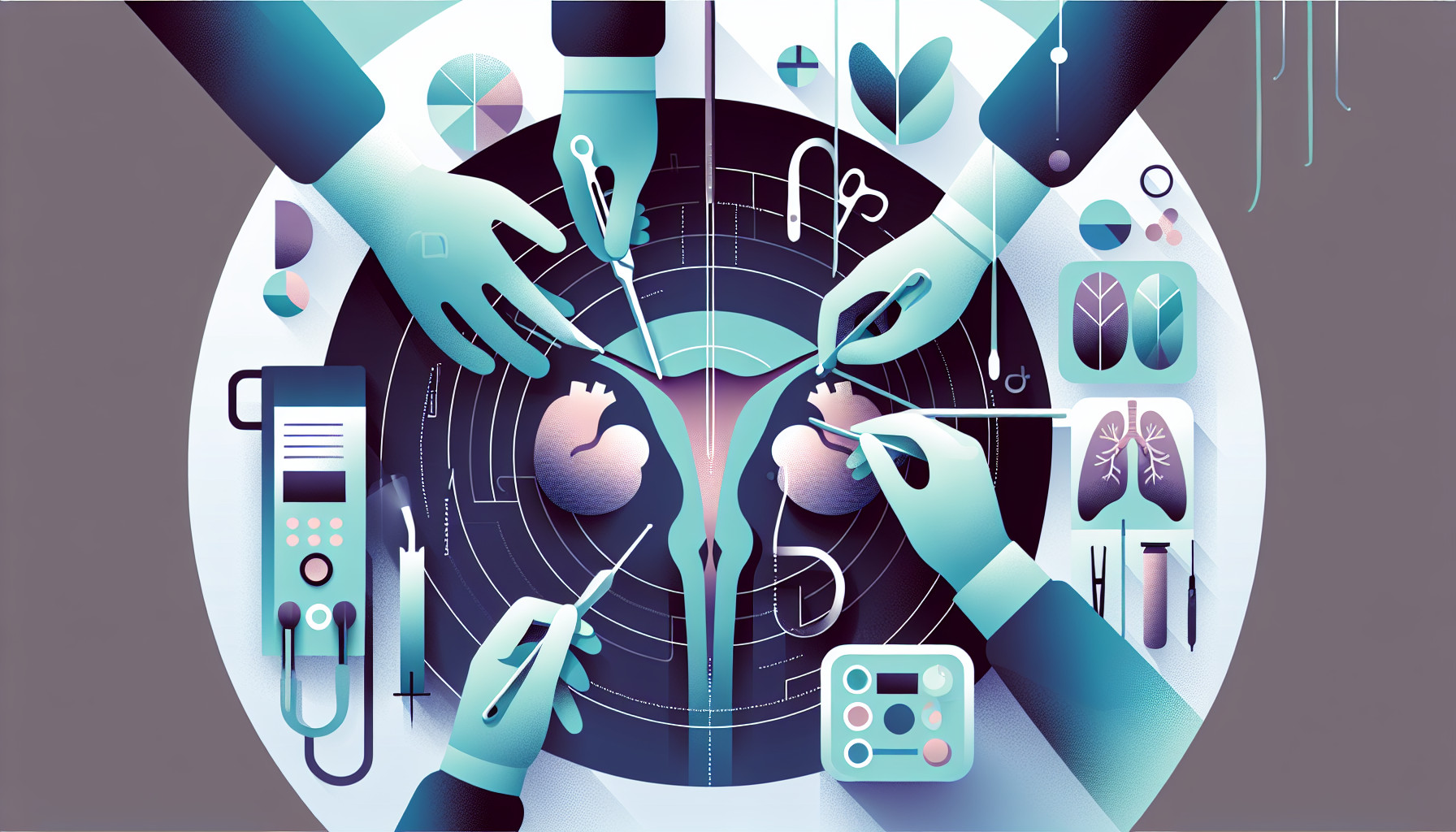Our Summary
This research paper looked at the risks of complications related to the urinary system during and after two types of surgery for cervical cancer: robotic radical hysterectomy (RRH) and laparoscopic radical hysterectomy (LRH). The researchers analyzed 23 clinical trials and found no significant difference in the risk of urinary complications between the two methods. Factors such as the quality of the study, location of the study, and year of publication did not affect these results. Overall, the researchers concluded that RRH is not better than LRH in terms of urinary complications during and after surgery.
FAQs
- What were the two types of surgeries for cervical cancer studied in this research paper?
- Did the research find any significant difference in the risk of urinary complications between robotic radical hysterectomy and laparoscopic radical hysterectomy?
- Did factors like the quality of the study, location, and year of publication affect the risk of urinary complications in these surgeries?
Doctor’s Tip
A helpful tip a doctor might tell a patient about laparoscopic hysterectomy is to follow post-operative care instructions closely, including avoiding heavy lifting and strenuous activities for a certain period of time to aid in the healing process and reduce the risk of complications. It is also important to attend follow-up appointments with your doctor to monitor your recovery progress and address any concerns.
Suitable For
Patients who may be recommended for laparoscopic hysterectomy include those with conditions such as:
- Uterine fibroids
- Endometriosis
- Abnormal uterine bleeding
- Chronic pelvic pain
- Pelvic organ prolapse
- Gynecologic cancers
- Adenomyosis
Laparoscopic hysterectomy is often recommended for patients who are looking for a minimally invasive surgical option with shorter recovery times, less pain, and lower risk of complications compared to traditional open surgery. However, the decision to undergo laparoscopic hysterectomy should be based on individual patient factors and discussed with a healthcare provider.
Timeline
Before laparoscopic hysterectomy:
- Patient undergoes pre-operative assessment and consultation with the surgeon
- Patient may need to undergo additional tests or screenings
- Patient is instructed on pre-operative preparations such as fasting and medication management
- Patient signs consent forms and discusses any concerns with the surgical team
During laparoscopic hysterectomy:
- Patient is placed under general anesthesia
- Surgeon makes small incisions in the abdomen to insert a laparoscope and other surgical instruments
- Surgeon removes the uterus and possibly other reproductive organs
- Procedure typically takes 1-2 hours
- Patient is monitored closely for any complications during the surgery
After laparoscopic hysterectomy:
- Patient is taken to a recovery area to wake up from anesthesia
- Patient may experience some pain, bloating, and discomfort in the abdomen
- Patient is typically discharged from the hospital within 24 hours
- Patient is given instructions for post-operative care, including pain management, wound care, and activity restrictions
- Patient may need to follow up with the surgeon for post-operative appointments and monitoring
Overall, laparoscopic hysterectomy is a minimally invasive surgical procedure that offers several benefits including shorter recovery time, less pain, and lower risk of complications compared to traditional open surgery.
What to Ask Your Doctor
- What are the potential risks and complications associated with a laparoscopic hysterectomy?
- How long is the recovery period after a laparoscopic hysterectomy?
- Will I need to stay in the hospital after the surgery, and if so, for how long?
- What are the potential long-term effects of a laparoscopic hysterectomy on my overall health and well-being?
- Are there any alternative treatment options to consider before proceeding with a laparoscopic hysterectomy?
- How experienced are you in performing laparoscopic hysterectomies, and what is your success rate?
- Will I need to follow any specific post-operative care instructions or restrictions?
- What are the potential risks of complications related to the urinary system during and after the surgery?
- How will my urinary function be monitored and managed during the recovery process?
- Are there any specific factors or conditions that may increase my risk of urinary complications during a laparoscopic hysterectomy?
Reference
Authors: Hwang JH, Kim BW, Kim SR, Kim JH. Journal: J Minim Invasive Gynecol. 2020 Jan;27(1):38-47. doi: 10.1016/j.jmig.2019.07.008. Epub 2019 Jul 14. PMID: 31315060
